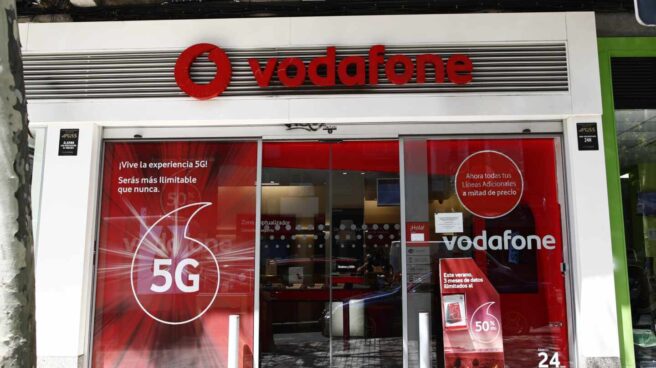

July 26, 2019, communications, mobile Eduardo Parra / Europa Press (ARCHIVE Photo) 07/26/2019
Zegona, the British investment fund that bought Vodafone Spain’s business, has already developed a new strategic plan designed to turn around the operator’s current situation in the national market. The task is important because the new owner intends to achieve high profitability in a few years, increase revenue and attract more customers.
In a lengthy document sent to the London Stock Exchange to inform investors of plans it will implement in Spain, Zegona It focuses on several aspects that will help the operator get back on the growth path. Notable among them is the new commercial policy he will unveil in the coming months once he gains control of the business. To increase its headcount, the investment fund is planning significant rate cuts and a new turn in television content, such as live sports broadcasts.
The new Vodafone relies on “customer rotation”. That is, a new dance of clients who have migrated to companies budget looking for more competitive prices for the same services. A policy completely opposite to that which had hitherto prevailed in the subsidiary of the British company, since they advocated that in order to have quality services, one must pay for them.
“The success of Vodafone Spain’s business plan depends on its ability to control customer churn. This requires checking for competing services and offering content or features that Vodafone Spain does not offer (e.g. live sports packages for pay TV, including football content)- Zegona emphasizes in the document.
It must be remembered that Vodafone was the first major company to withdraw from football due to its cost. In 2021, the operator has decided not to pay for the Champions League or LaLiga offering. True, the possibility of concluding a contract for a beautiful sport allowed the British company to gain market share, but the price of acquiring the rights was too high, and the telecom’s debt increased significantly. Now Zegona is not shy about taking out the checkbook and providing live sports content to its customers.
The investment fund itself also believes that in order to win clients, it must intensify the war for the client, and plans to promote low-cost brands for growth in the national market. “There is great potential to increase our value share in the Spanish market by strengthening Vodafone Spain’s value propositions such as the Lowi brand, taking advantage of areas of differentiation that other companies’ brands value. suppliers cannot easily reproduce such as adding 5G and TV to Lowi’s offering.”
In addition, Zegona assures that it intends to increase its offerings to match the actions being carried out by competitors such as Digi and MásMóvil in order to “close the gap in customer growth.”
These plans coincide with the recent publication of new data from rival major operators such as Telefónica, Orange and Vodafone itself.
For example, Finetwork announced that it had already surpassed one million customers in October this year. Digi, for its part, added over 337,000 customers in the third quarter of the year, putting the company on track to reach over 6.1 million users in the third quarter of the year.
Discharge plan
In turn, Zegona, in a document sent to the London Stock Exchange, explains to investors that he is exploring staff reductions and the closure of less productive stores, the newspaper reported. In addition, the fund also assumes that a wave of strikes could occur, since “a proportion of Vodafone Spain’s employees belong to various unions and adhere to collective agreements, therefore (…) will be exposed to the risk of strikes and other actions.”
In this regard, it is emphasized that the acquisition may have a negative impact on Vodafone Spain’s relationship with its employees, especially when current collective agreements expire and should be revised.
Source: El Independiente